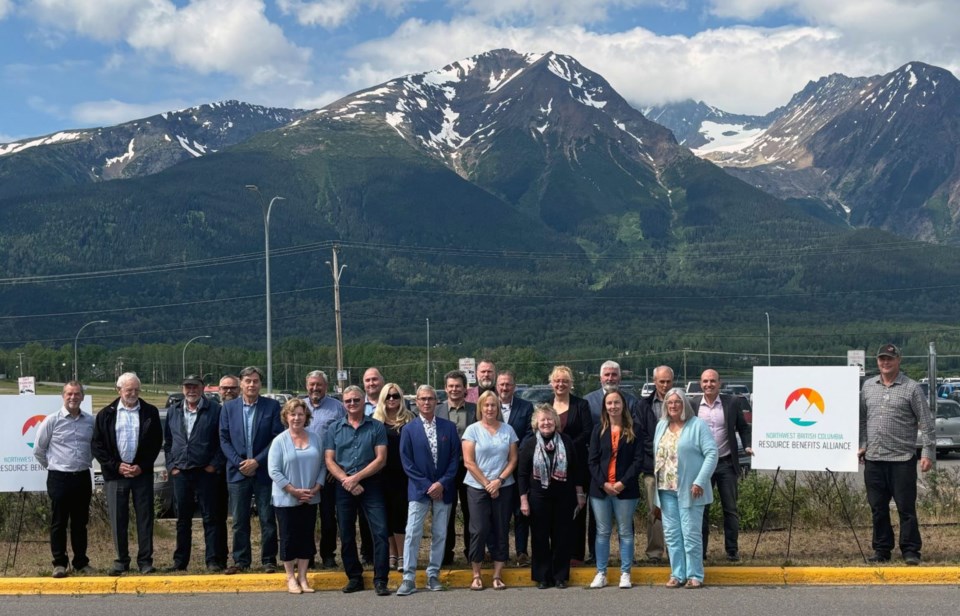Is Prince George getting its fair share when it comes to provincial funding for the community’s vital infrastructure?
It’s a question increasingly being asked locally as dozens of communities across rural British Columbia reap the benefits of agreements with the province.
Sometimes known as fair share agreements, the deals are intended to address challenges that rural local governments encounter raising revenue necessary to make critical investments in local infrastructure and services to support significant industrial development.
The most recent example is the Resource Benefit Alliance (RBA), a deal between the province and 21 local governments across northwestern British Columbia from Masset to Vanderhoof.
First announced in February of 2024, the RBA will see $250 million pumped into the communities over the next five years.
“The funding is a game changer for all of our communities,” said Prince Rupert Mayor Herb Pond, RBA co-chair. “This allows us to fix, replace and build basic infrastructure that all our communities rely on … without the heavy financial burden being placed on our residents.”
The RBA was formed in 2014 to lobby the province to provide more funding to help cover costs for major projects like the coastal gas link pipeline and the LNG Canada export facility.
The argument is that these new projects place an increased burden on the infrastructure of municipalities.
However, the municipalities receive little in return, as the projects exist primarily outside their borders and do not contribute to their tax base.
Perhaps the best-known of the provincial fair share agreements is the Peace River Agreement, signed with eight municipal governments and renewed in 2015.
Houston Mayor Shane Breinen was instrumental in securing the PRA. He summed up the signing of the agreement in one word: “relief.”
“We’ve negotiated with the province since 2014 while watching our critical infrastructure fail,” he said.
“This agreement is going to have positive impacts on our region for decades to come.”
The Peace River Agreement will see a total of $1.1 billion pumped into local governments in the Peace River region over 20 years.
Under the PRA, when signatories meet requirements, the province will provide annual payments to the eight Peace River local governments to a maximum combined total of $50 million per year (plus a two per cent inflator). Payments to individual local governments are determined by an allocation formula included in the PRA that’s calculated and certified by the Peace River Regional District.
The eight local government recipients that signed the PRA and will share this year’s $50-million payment are the District of Chetwynd, the City of Dawson Creek, the City of Fort St. John, the District of Hudson’s Hope, the Village of Pouce Coupe, the District of Taylor, the District of Tumbler Ridge and the Peace River Regional District.
Breinen said years of research and background work went into securing the PRA.
“To build a case we had to prove numbers,” he says. “Most northern communities are seen as a drain on the provincial tax system as it costs more to deliver many services in large geographic areas with a small population base. While this is true, we do punch way above our weight in what we contribute. People can say that it is the corporations paying and while this also is true, it is our residents that get up each morning and pull on their work boots and go out and work long hours, often this work is physically demanding and in extreme weather.”
As for any potential hidden downsides of such a deal with the province, Brienen says in the past nine years they haven’t seen any.
“Only positives,” he says. “While negotiating the provincial government recognized there were unique circumstances for our area as the pipeline came through the region and in 2019 put out a $100-million Northern Capital Grant, and the following year put out a $50-million Northern Capital Grant for the NWRBA region. For Houston that meant we were able to replace two of our downtown streets and replace water and sewer lines. We had a year where we had eight water breaks on 9th Street at a cost of $8,0000 to $12,000 for each repair. We also have been able to get more paving done.”
Brienen says the background work included studies on industry, exports, ongoing projects and rail transport in an effort to provide a sense of what the northern economy does.
“Houston for example had well over a billion dollars of stumpage from our community since 1980,” he says. “There is still much work to be done as the deal will be renewed and adjusted in five years.”
Research and analysis are important factors in informing conversations between the province and regions on the opportunities and challenges within a region, says Kerri Ralph, a spokesperson for the Ministry of Municipal Affairs.
“Local governments are important partners in rural industrial development throughout the province. They provide service centres, housing and recreational opportunities for rural industries and their workers,” she says.
“In B.C., regional funding agreements are intended to address challenges that small, rural local governments encounter in raising the revenues necessary to make the critical investments in local infrastructure and services to support significant industrial development.”
Since 2017, the province has provided more than $55 million to the City of Prince George through a variety of grant programs to assist in the construction of new and expanded municipal infrastructure, and support local community services, according to the ministry.
However, a comprehensive deal between Prince George and the provincial government on a scale similar to the PRA has never been broached.
In a future article, The Citizen will look at why, and whether the municipality has any interest in such a deal.




